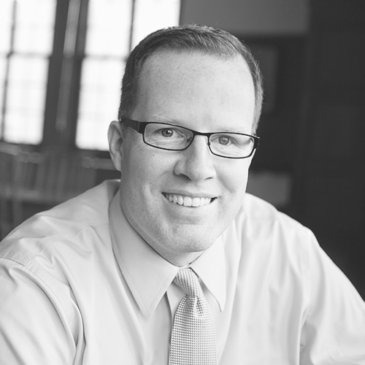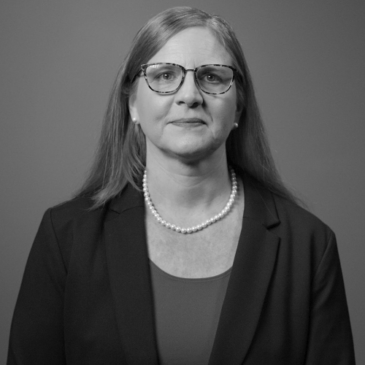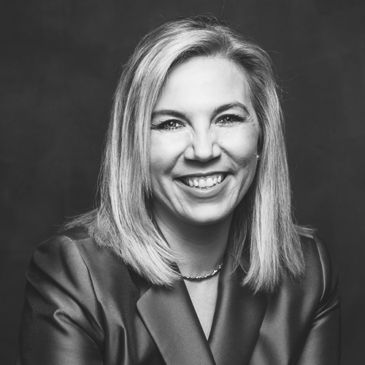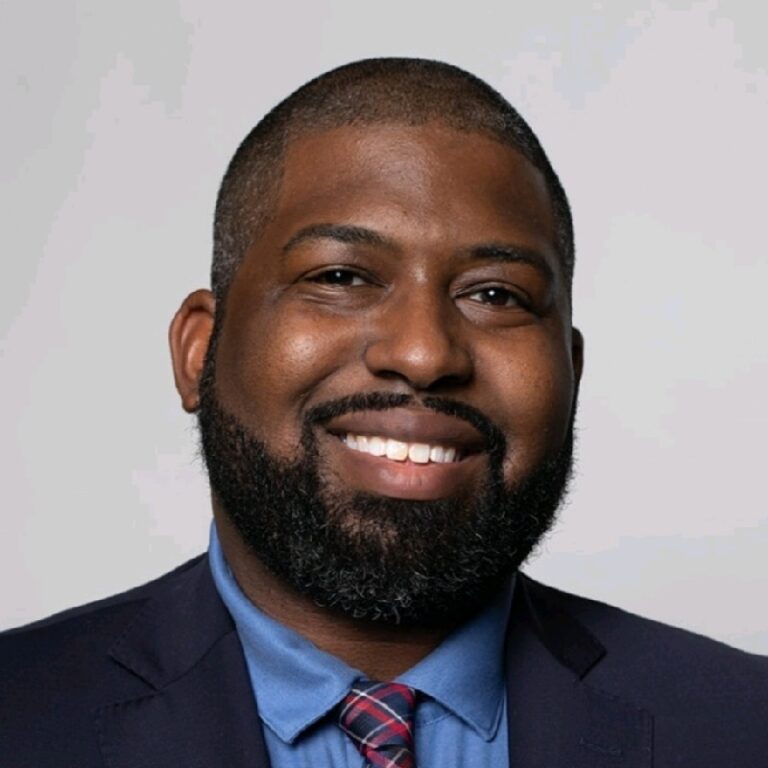Bradford S. Bell is the William J. Conaty Professor of Strategic Human Resources and Director of the Center for Advanced Human Resource Studies (CAHRS) in the ILR School at Cornell University. He received his B.A. in Psychology from the University of Maryland at College Park and his M.A. and Ph.D. in Industrial and Organizational Psychology from Michigan State University. Professor Bell’s research and teaching interests include talent management, team development and effectiveness, and virtual work. He is a former editor of Personnel Psychology and a fellow of the Society for Industrial and Organizational Psychology (SIOP) and the American Psychological Association (APA).

Hybrid Work StrategyCornell Certificate Program
Overview and Courses
In today’s business environment, hybrid work models are commonplace and can serve to attract and retain employees. Successful models require a strong group culture to keep organizations running smoothly and productively. For many organizations, hybrid models represent a significant shift in how work gets done. As such, managers and leaders need to rethink what it means to lead in this new environment. Certainly some of the leadership approaches that are used in fully in-person groups or in fully virtual groups still apply, but hybrid models also create a number of unique leadership opportunities and challenges. Key success factors include creating an inclusive hybrid work environment and effective collaboration processes, as well as implementing strategic and deliberate communication norms.
In this certificate program, you will examine a variety of hybrid work models and hybrid workgroup scenarios. You’ll have the opportunity to explore the interconnectedness of culture and productivity in hybrid teams and identify best practices for launching a hybrid team. By the end of the program, you will have discovered new ways to confidently manage hybrid teams for high performance.
The courses in this certificate program are required to be completed in the order that they appear.
Course list
Uniting a workgroup to function optimally while some employees report in person and others are virtual or remote isn't exactly new, but this hybrid format — the adoption of which was accelerated by the pandemic — has become a mainstay in today's workplace. Managers and executives, therefore, need to redesign their team leadership models and work processes for a hybrid future.
In this course, you will examine many different types of hybrid work arrangements. You will define what a hybrid team is and assess the current state of your organization: How well is it functioning? Where is there room for improvement in communication, process, and norms? After identifying a desired state for your organization, you will select the most beneficial hybrid model for your team, explore the implications of various hybrid arrangements, and prepare to share your recommendations for your workgroup.
By the completion of the course, you'll come away with emerging best practices from Cornell research to make your hybrid workgroup as effective as it can possibly be.
- Jul 16, 2025
- Oct 8, 2025
- Dec 31, 2025
- Mar 25, 2026
- Jun 17, 2026
Culture and productivity are deeply intertwined. Studies show that successful experiences in a workgroup scenario can have a positive impact on a person's satisfaction with life outside of work. This element of well-being is known to reduce turnover and increase productivity overall. The same is true for job satisfaction: Positive interactions result in job satisfaction, which leads to greater productivity for organizations.
In this course, you will examine recommended practices for yielding the best results from the critical intersection of culture and productivity in a hybrid workgroup. By applying these concepts in your hybrid workgroups, you can optimize your organization and foster productivity and culture in your teams.
You are required to have completed the following courses or have equivalent experience before taking this course:
- Hybrid Work Models
- Oct 22, 2025
- Jan 14, 2026
- Apr 8, 2026
Managing a team in a hybrid environment requires team leaders to acquire new skills and strategies. In this course, you will be equipped with tools that will allow both leaders and team members to assess the state of leadership within their team. You will then explore best practices for effectively launching a hybrid team and identify what is needed to foster high performance in hybrid teams. Finally, you will practice leadership techniques that will allow you to adapt to changing circumstances and sustain your hybrid team's high performance.
You are required to have completed the following courses or have equivalent experience before taking this course:
- Hybrid Work Models
- Aug 13, 2025
- Nov 5, 2025
- Jan 28, 2026
- Apr 22, 2026
Achieving effective communication within teams can be challenging, which means communication within hybrid teams adds another layer of difficulty. In this course, you will discuss the main communication issues that hybrid teams are likely to encounter and identify specific solutions to those issues. You will then design a hybrid communication strategy to align with your team's needs and establish communication protocols and processes to support effective communication within a hybrid environment.
You are required to have completed the following courses or have equivalent experience before taking this course:
- Hybrid Work Models
- Aug 27, 2025
- Nov 19, 2025
- Feb 11, 2026
- May 6, 2026
Request Information Now by completing the form below.
How It Works
- View slide #1
- View slide #2
- View slide #3
- View slide #4
- View slide #5
- View slide #6
- View slide #7
- View slide #8
Faculty Authors
Donna L. Haeger is a Professor of Practice in the Charles H. Dyson School of Applied Economics and Management at Cornell University. She teaches introductory and advanced spreadsheet modeling courses for applied decision making. These courses leverage Microsoft Excel as a business analytics tool. Prior to teaching at Cornell, Dr. Haeger taught courses in management theory, organizational behavior, and marketing. With over 20 years in industry, her corporate experience includes work in investments, banking, and corporate finance.
Dr. Haeger is the business analytics concentration coordinator and chaired the task force responsible for launching the concentration. Her research interests lie at the intersection of organizational behavior and digitization. Dr. Haeger explores technology in the workplace, leadership, teams, and management. Her contributions relate to influence and intergenerational exchanges in an effort to blend human systems. Dr. Haeger presents her research at the Academy of Management and other leadership associations. She also enjoys mentoring students interested in undergraduate research, especially when the products serve to better communities. Dr. Haeger currently sits on the board of directors for Consumer Credit Counseling Services of Rochester, which specializes in spreading financial literacy to communities.
Dr. Theomary Karamanis is a multiple-award-winning communication professor and consultant with 25 years of global experience. She is a full-time Senior Lecturer of Management Communication at the Cornell SC Johnson College of Business and regularly delivers executive education programs in leadership communication, crisis communication, and strategic communication. Dr. Karamanis has held several professional leadership positions, including Chair of the Global Communication Certification Council, Chair of the International Association of Business Communicators (IABC) Academy, and Chair of the IABC Awards Committee.
Dr. Karamanis’s academic background includes a Ph.D. in Communication Studies, a Master of Arts in Mass Communication, and a post-graduate certificate in telecommunications, all from Northwestern University, as well as a Bachelor’s degree in Economics from the Athens University of Economics and Business. She also holds professional certifications as a Strategic Communication Management Professional (SCMP), online facilitator, and executive program instructor.
Dr. Karamanis has been actively engaged in various industries (private, nonprofit, and government) and fields of expertise, including corporate communication, media and PR, higher education administration and teaching, and consulting. She has lived and worked in Canada, Greece, Trinidad and Tobago, the United Arab Emirates, and the United States of America.
Dr. Karamanis is the recipient of 40 professional communication awards, including 12 Platinum MarCom awards, seven Gold Quill awards, four Silver Quill awards, and a Comm Prix award. In 2020, she received the Award for Excellence in Communication Consulting by the Association of Professional Communication Consultants and the Association for Business Communication. Dr. Karamanis is the author of several books and academic papers on communication and regularly delivers presentations at international conferences and other business forums.

Bradford S. Bell is the William J. Conaty Professor of Strategic Human Resources and Director of the Center for Advanced Human Resource Studies (CAHRS) in the ILR School at Cornell University. He received his B.A. in Psychology from the University of Maryland at College Park and his M.A. and Ph.D. in Industrial and Organizational Psychology from Michigan State University. Professor Bell’s research and teaching interests include talent management, team development and effectiveness, and virtual work. He is a former editor of Personnel Psychology and a fellow of the Society for Industrial and Organizational Psychology (SIOP) and the American Psychological Association (APA).

Donna L. Haeger is a Professor of Practice in the Charles H. Dyson School of Applied Economics and Management at Cornell University. She teaches introductory and advanced spreadsheet modeling courses for applied decision making. These courses leverage Microsoft Excel as a business analytics tool. Prior to teaching at Cornell, Dr. Haeger taught courses in management theory, organizational behavior, and marketing. With over 20 years in industry, her corporate experience includes work in investments, banking, and corporate finance.
Dr. Haeger is the business analytics concentration coordinator and chaired the task force responsible for launching the concentration. Her research interests lie at the intersection of organizational behavior and digitization. Dr. Haeger explores technology in the workplace, leadership, teams, and management. Her contributions relate to influence and intergenerational exchanges in an effort to blend human systems. Dr. Haeger presents her research at the Academy of Management and other leadership associations. She also enjoys mentoring students interested in undergraduate research, especially when the products serve to better communities. Dr. Haeger currently sits on the board of directors for Consumer Credit Counseling Services of Rochester, which specializes in spreading financial literacy to communities.

Dr. Theomary Karamanis is a multiple-award-winning communication professor and consultant with 25 years of global experience. She is a full-time Senior Lecturer of Management Communication at the Cornell SC Johnson College of Business and regularly delivers executive education programs in leadership communication, crisis communication, and strategic communication. Dr. Karamanis has held several professional leadership positions, including Chair of the Global Communication Certification Council, Chair of the International Association of Business Communicators (IABC) Academy, and Chair of the IABC Awards Committee.
Dr. Karamanis’s academic background includes a Ph.D. in Communication Studies, a Master of Arts in Mass Communication, and a post-graduate certificate in telecommunications, all from Northwestern University, as well as a Bachelor’s degree in Economics from the Athens University of Economics and Business. She also holds professional certifications as a Strategic Communication Management Professional (SCMP), online facilitator, and executive program instructor.
Dr. Karamanis has been actively engaged in various industries (private, nonprofit, and government) and fields of expertise, including corporate communication, media and PR, higher education administration and teaching, and consulting. She has lived and worked in Canada, Greece, Trinidad and Tobago, the United Arab Emirates, and the United States of America.
Dr. Karamanis is the recipient of 40 professional communication awards, including 12 Platinum MarCom awards, seven Gold Quill awards, four Silver Quill awards, and a Comm Prix award. In 2020, she received the Award for Excellence in Communication Consulting by the Association of Professional Communication Consultants and the Association for Business Communication. Dr. Karamanis is the author of several books and academic papers on communication and regularly delivers presentations at international conferences and other business forums.
- View slide #1
- View slide #2
- View slide #3
Key Course Takeaways
- Examine the desired state of your organization to identify the best hybrid model for your unit
- Enhance hybrid workgroup productivity by exploring the effect of organizational culture on productivity
- Adjust leadership styles and standards to cultivate high performance in hybrid teams
- Design intentional and strategic communications to enhance the hybrid environment

Download a Brochure
Not ready to enroll but want to learn more? Download the certificate brochure to review program details.

What You'll Earn
- Hybrid Work Strategy Certificate from Cornell University’s ILR School and SC Johnson College of Business
- 40 Professional Development Hours (4 CEUs)
- 40 Professional Development Credits (PDCs) toward SHRM-CP and SHRM-SCP recertification
- 40 Credit hours towards HRCI recertification
Watch the Video
Who Should Enroll
- Individuals managing a team, including a hybrid team
- Individual contributors working in a hybrid environment
- Department, team, and unit leaders
- HR professionals
- Consultants and advisors
Explore Related Programs
Request Information Now by completing the form below.

Hybrid Work Strategy
| Select Payment Method | Cost |
|---|---|
| $3,699 | |
































